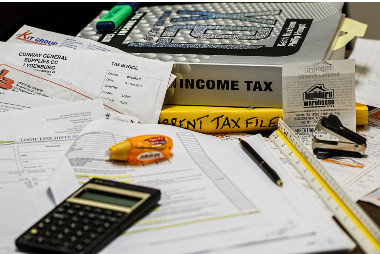 Embarking on self-employment offers independence and flexibility but also introduces unique financial responsibilities. To ensure a stable and successful journey, consider the following strategies:
Embarking on self-employment offers independence and flexibility but also introduces unique financial responsibilities. To ensure a stable and successful journey, consider the following strategies:
Manage Your Cash Flow
Income for the self-employed can be unpredictable, with potential gaps between payments. To maintain financial stability:
- Prioritise Essential Expenses: Before making significant purchases, ensure you’ve covered personal wages and regular bills.
- Build an Emergency Fund: Set aside savings to cushion against unforeseen expenses or income fluctuations.
- Plan for Time Off: Without paid leave benefits, proactively save to fund holidays or cover periods of illness.
For additional guidance on managing business finances, visit business.gov.au.
Separate Personal and Business Finances
Establish clear boundaries between your personal and business finances:
- Pay Yourself a Wage: Determine a consistent salary from your business profits.
- Maintain Separate Bank Accounts: Use distinct accounts for personal and business transactions to simplify financial tracking and tax preparation.
Protect Your Income and Business
Without employer-provided benefits, safeguarding your income is crucial:
- Income Protection Insurance: This coverage can replace a portion of your income if you’re unable to work due to illness or injury. Check if your superannuation fund offers this insurance.
- Review Existing Policies: Transitioning to self-employment may affect insurance coverage linked to previous employment. Verify and adjust your policies as needed.
Understand Your Legal Obligations
Proper legal and financial setup is fundamental for your business:
- Business Structure: Choose an appropriate structure (e.g., sole trader, partnership, company) that aligns with your business goals and legal requirements.
- Director Identification Number: If operating as a company director, apply for a director ID as mandated by Australian regulations.
- Consult the starting a small business guide on business.gov.au for comprehensive information.
Manage Taxes and Superannuation
As a self-employed individual, you’re responsible for your tax obligations and retirement savings:
- Set Aside Taxes: Regularly allocate a portion of your income for tax liabilities to avoid year-end surprises.
- Lodge Tax Returns Promptly: Utilise the Australian Taxation Office’s online services or seek assistance from a qualified accountant to ensure accurate and timely submissions.
- Contribute to Superannuation: While not compulsory, making regular or lump-sum contributions to your super fund can provide financial security in retirement. These contributions may also be tax-deductible.
Seek Professional Advice
Navigating self-employment complexities can be challenging:
- Consult Financial Professionals: Engage accountants or financial advisers experienced with self-employed clients to assist with tax planning, financial management, and compliance.
Access Support When Needed
If you encounter financial difficulties:
- Seek Assistance: Free and confidential support services are available to help you navigate challenges and develop strategies for financial stability.
By proactively managing your finances, understanding legal obligations, and seeking appropriate advice, you can build a resilient and thriving self-employed career.
For further assistance book an initial complimentary consultation with one of our accountants.
Source: moneysmart.gov.au





